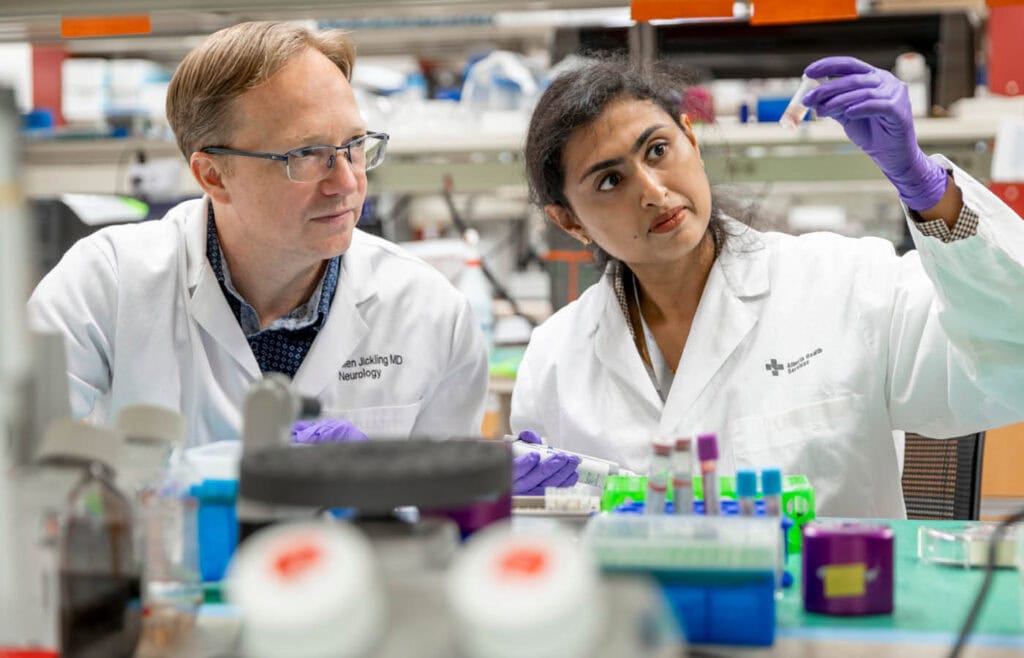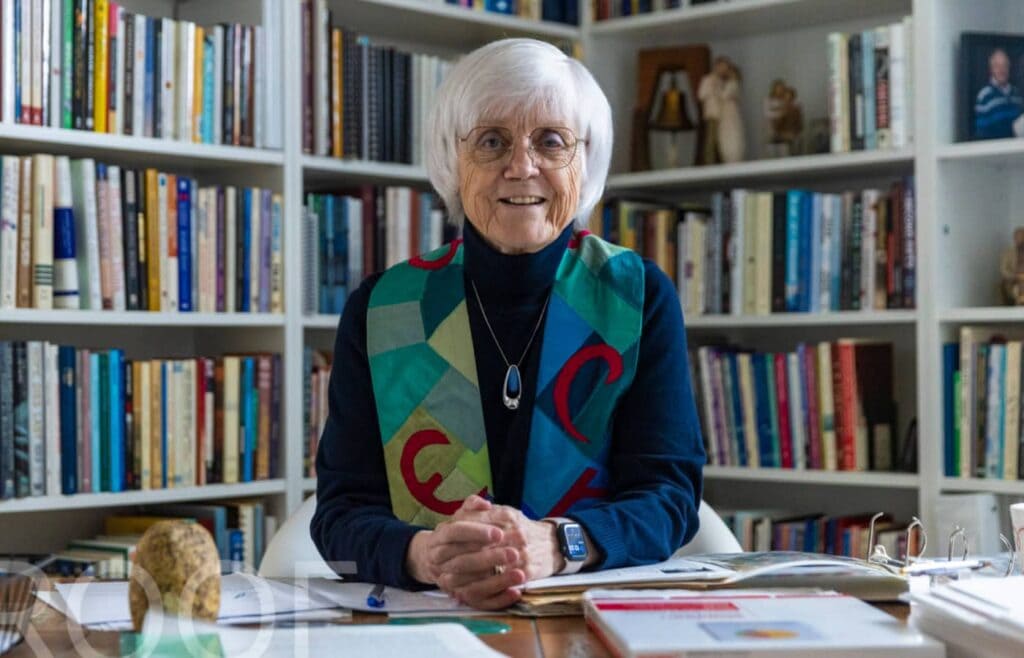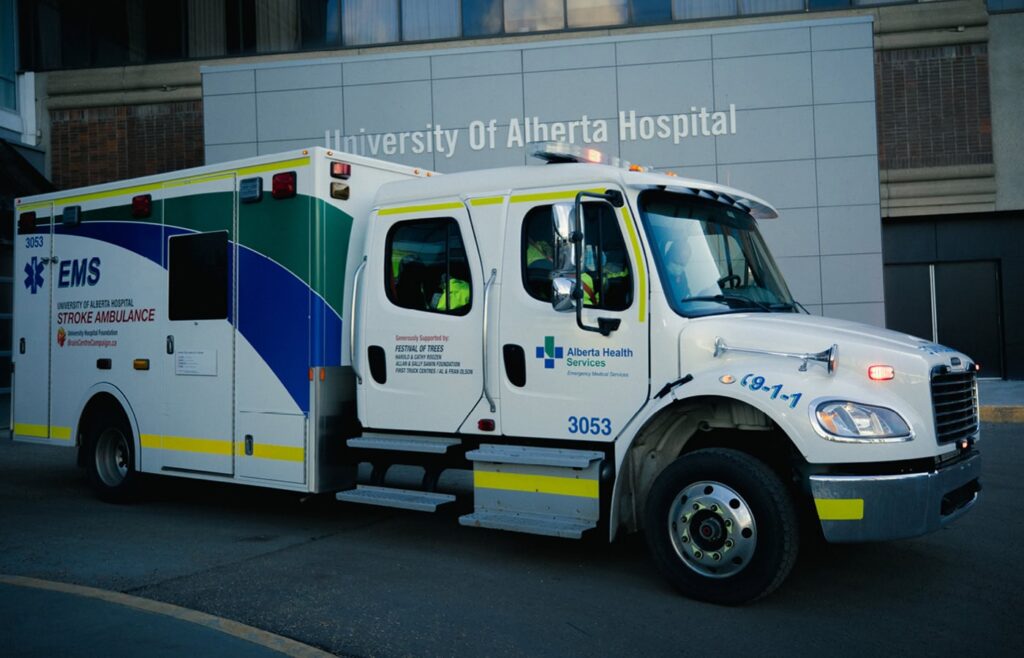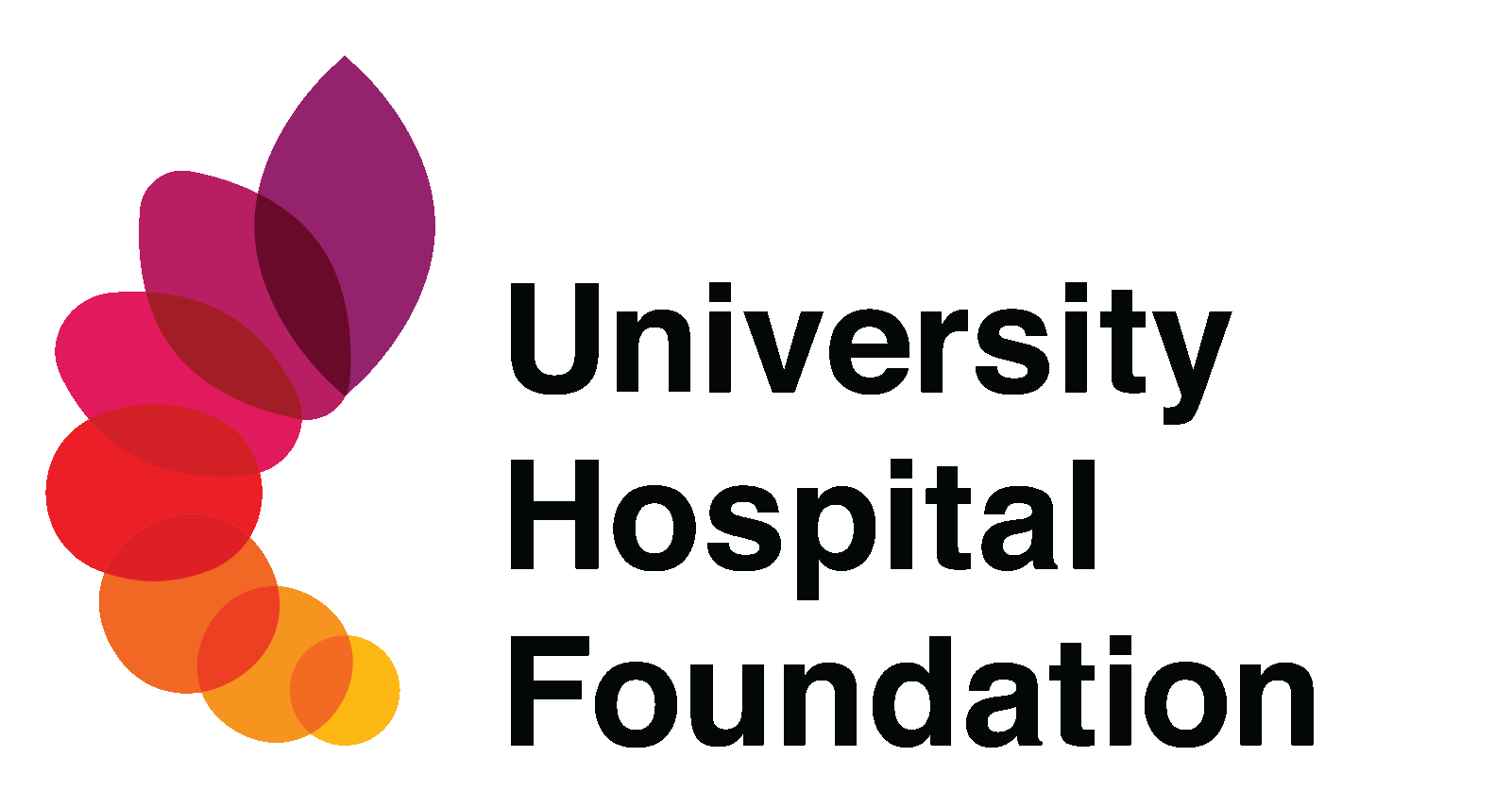When it Comes to Stroke Care, Time is Brain
What if a Stroke Could be Diagnosed in Minutes?
Dr. Glen Jickling is pioneering new ways to improve stroke care by making treatment faster and more effective.
His STREAM project is exploring how the immune system can help dissolve dangerous blood clots more efficiently. By studying a type of white blood cell called monocytes, Dr. Jickling’s team hopes to unlock new ways to enhance clot-busting treatments. The goal? To reduce brain damage after a stroke and help more people recover fully and return to their lives.
Through the REDI Stroke project, Dr. Jickling’s team has already developed rapid blood tests that will help doctors quickly identify stroke patients in the moment and choose the right treatment. Although work continues to decide how to produce and distribute the tests, they will be designed to save valuable minutes during emergencies — ensuring more patients get the right care, right away.
Together, these are just two of the many projects transforming how strokes are diagnosed and treated, giving patients a better chance at recovery and independence.

Ronna’s Second Chance

Even though it’s an experience I hope to never have again, and an experience I hope others don’t have, I am grateful for so many things. I’m very grateful to the stroke ambulance, very grateful for their capacity for competence and for caring, very grateful for the fact that even though our system is under major stressors, I got the help I needed when I needed it.
In 2017, Canada’s first stroke ambulance hit the streets. Initially funded as part of the University Hospital Foundation’s Brain Campaign, which ran 2011-2019, the stroke ambulance has taken thousands of calls since it’s inception – including Ronna, in February 2025.
At 76, Ronna was going about her morning reading and preparing for an appointment. While taking a shower, she suddenly realized she didn’t know how to turn off the water. She knew something was wrong. Ronna was having a stroke.
Thanks to Edmonton’s world-leading stroke ambulance — the only one of its kind in Canada — help arrived within minutes. The specialized team performed a CT scan right in the driveway and sent the results to a neurologist at the University of Alberta Hospital.
Within an hour of her stroke, Ronna received life-saving clot-busting medication.
Today, she’s back to her daily routine — reading, writing, walking and enjoying time with her husband — without any lasting effects.
Ronna’s story is a powerful example of how donor-supported innovation can turn a life-threatening emergency into a full recovery.
Who Ever Heard of a Stroke Van
Watch Ronna’s remarkable story of survival and recovery — and see how innovative stroke care saved her life.
Advancing Stroke Care Through Research and Innovation
Every minute counts when it comes to stroke—and thanks to donor-funded research and innovation, those minutes are being used more effectively than ever. From faster diagnostics to cutting-edge treatments, the University Hospital Foundation is driving projects that help stroke patients get the right care, right away. These advancements aren’t just saving lives—they’re helping more people recover fully and return to the lives they love.

You Can Save Lives by Donating Today
Every donation helps the University Hospital Foundation fund research, technology, equipment and innovation to transform health for people like Ronna.
